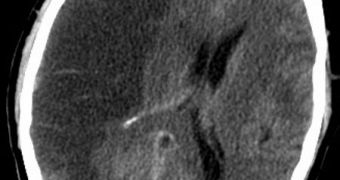A new study conducted by researchers in the United States is revealing that people who have a positive outlook on life, and are generally more optimistic than their peers, are at a lower risk of suffering strokes during their life.
University of Michigan investigators say that the study was conducted on a nationally representative sample of test subjects and that the correlations they discovered withstand close scientific scrutiny.
In order to assess optimism within the study group, the research group used a 16-point scale. They say that all participants were seniors over the age of 50, who were tracked for a two-year follow-up period.
For each extra point on the optimism scale, people exhibited a 9 percent decrease in their risk of suffering from an acute stroke throughout the study period. The study group included 6,044 people.
“When people have a positive outlook on life, they undertake actions more likely to produce good outcomes,” says U-M clinical psychology PhD student Eric Kim, who was also the lead author of the research study.
Details of the research effort were published in the latest issue of Stroke: Journal of the American Heart Association. Heart disease and cancer are the leading causes of death in the United States, while stroke comes in third. As such, preventing it could save thousands of lives yearly.
Scientists believe that optimism is associated with better heart health outcomes, and that feeling good can also help boost the efficiency of the immune system in fighting invaders. Together, these factors enable people to eliminate some of the causes leading to strokes.
“Optimism seems to have a swift impact on stroke,” Kim adds. Th expert worked closely with colleagues Nansook Park and Christopher Peterson, from the U-M Department of Psychology. The data they used for the study were collected between 2006 and 2008.
They were extracted from the ongoing Health and Retirement Study. All participants in this study had a clean medical history when they signed up. They have to report stroke and psychological data themselves, and researchers use these datasets to draw statistical correlations.
Experts at U-M say that the correlation between optimism and a reduced risk of stroke remains valid even after researchers accounted for the influence of other protecting factors, such as taking vitamins, eating a healthy diet, exercising, and leading a balanced lifestyle.

 14 DAY TRIAL //
14 DAY TRIAL //